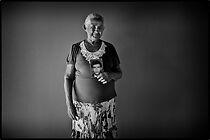|
How to keep alive the memory of those who have fallen during the military dictatorship? How can we overcome the legal obstacles brought on by the Amnesty Law, enacted thirty years ago, and advance with the recovery and reconstruction of that period? How to gather the scattered facts in order to assemble the puzzle and recover the image of one of the darkest periods in the history of our country? How are remains of the military dictatorship still present today in our society? The newly established Truth Commission was created to search for some of these answers. And parallel to it, we realized the need for a record of this process.
So, which crimes of that period haven’t been investigated yet and remain unpunished? How many were killed, how were they killed, who murdered them? Where are the bodies of the parents, brothers, sisters, sons and daughters of hundreds of Brazilians citizens? How far will the Truth Commission’s work go and what does the population expect from it?
The Truth 12.528 documentary, which the name relates to the law that created the National Truth Commission in 2011 and established it in May 2012, comes to contribute towards deepening the debate. Intends to recover and reconstruct the memory. Explains how the National Truth Commission works and shows its relevance today through stories that still need to be told. It is a record of society’s expectations in regards to the Commission as a pressure mechanism. What still needs to be discovered and what still needs to be said?
Always making a bridge with current days with the intent of educating, raising awareness, and informing the population as whole. What remnants from that period are present in our society today? It is not about revenge or nostalgia, it is about the quest for the construction of the country’s memory, in opposition to the social anesthesia in which society is submerged in nowadays based on forgetfulness and reconciliation.
In the documentary, stories are told about people who suffered due to the repression and others who, in one way or another, are affected till this day, directly or indirectly.
The idea came after we realized the ignorance surrounding the period and the Commission itself. We believe time cannot erase memory, relegating to oblivion a historical time such as this, which needs to be documented for future generations.
So, using as central thread a timeline that jumps between reason and emotion, the documentary intercalates personal stories, having as background the period’s context and didactic explanations about the Commission’s activities.
|
|



wedinoct : Nope, didn't say that, the point was that because someone is rich, beautiful and famous ha...